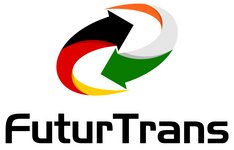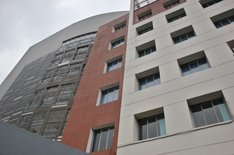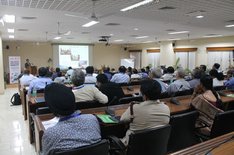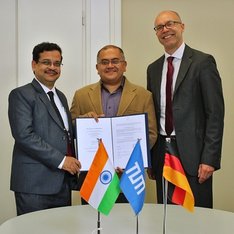
FuturTrans
Duration 2017-2022
Futuretrans is an Indo-German joint research center collaboration between the technical university of Munich (TUM), and the Indian Institute of Technology (IIT) Kharagpur. The center is located in IIT Kharagpur.
Background
In 2018, India overtook Germany to become the fourth largest automobile market globally (The Economic Times, 24 March 2018). Hence, it is natural that Germany – with its big automotive industry – considers India to be a vital market.
On the other hand, with more than 1.3 billion people, transportation is one of India's biggest challenges. Although many Indian cities have a large variety of transportation modes ranging from private cars, buses, underground trains, suburban train networks, taxis, trams (in Kolkata), and ferry services on the river – it is widely agreed upon that transportation in Indian cities is neither comfortable nor reliable. Private vehicles are also one of the significant contributors to air pollution in Indian cities. More than 4 out of 10 Indians are today exposed to 5x the safe limit of particulate matter in the air that they breathe (Financial Times, 11 December 2018). Air pollution pushes many Indians to flee from major Indian cities like the capital New Delhi, which impacts India's economy (The Washington Post, 16 November 2018). Traffic congestion in Indian cities is also alarming. In a recent study conducted by Boston Consulting in 2018, it was shown that commuters in Indian cities like Delhi, Mumbai, Bengaluru, and Kolkata spend an average of 1.5 hours more in their daily commute than their counterparts in other Asian cities, the financial loss of such commute times sums up to US$ 22 billion/year.
Mission and Objectives
In this research project, Indian and German scientists, academics, and industry partners are working together in intelligent and sustainable transportation technologies to find a better solution for more sustainable transportation systems and technologies. Such technologies include cost-effective electric vehicles (EVs), sustainable charging stations for EVs, electric autorickshaws, electric bikes, clean combustion engine vehicles, and smartphone-based technologies for public transportation integration. Many of these technologies would need intelligent software solutions, combining India’s leadership position in software engineering and Germany’s expertise in engineering and transportation technologies will not only lead to solutions that are useful for India, but about also other countries around the world.
The main project’s objectives can be summarized as:
- Develop holistic transportation solutions that combine public transport, intelligent infrastructure, and environmentally sustainable transportation modes. These include (a) the development of cost-effective electric vehicles and electromobility solutions like electric autorickshaws, (b) infrastructure like charging stations, and (c) technologies like new types of batteries. Many of these solutions will benefit India and will also be applicable in Germany and other countries around the world. These solutions will also promote the business potential of the German and Indian automotive industry in India.
- Develop India-specific automotive technology and solutions. Cars designed for Germany and other western countries are often not suitable for Indian road conditions, usage patterns, pedestrian behavior, and traffic and environmental conditions.
- Combine the complementary strengths of Germany in engineering and automotive technology, and of India in software engineering to meet the growing challenge of software-based functionality in cars.
Benchmarks
- Introductory workshop in Munich, June 2018 and agreement signature between TUM and IIT.
- Second Workshop in Kharagpur in October 2018, attended by researchers from TUM, TU Berlin, TU Chemnitz, TH Ingolstadt, Siemens, Bosch, Infineon, ETAS, Tata Motors, Tata Consultancy Services, OLA Cabs, and Teratrace, policy makers from India, the Office of the Principal Scientific Adviser to the Government of India, Transport Department of Government of West Bengal, and the West Bengal Traffic Department promising their support for this joint center.
Press coverage
The setting up of the center and the workshop in October 2018 have received widespread coverage in Indian press and media.
Indian Express Business-standard Millennium Post
The October 2018 workshop and more information on the center, its mission and planned activities have been covered by various news forums and television channels.


